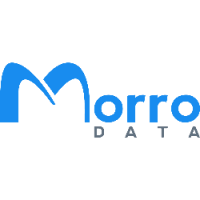How to Protect File Servers from Ransomware Attacks
How to Protect File Servers from Ransomware
Introduction
In recent years, ransomware attacks have evolved into a significant threat, exploiting various vulnerabilities to compromise networks and hold critical data hostage. Two distinct ransomware operations, CheckMate and Akira, have made headlines due to their unique methods and the impact they’ve had on targeted organizations.
CheckMate ransomware, discovered in 2022, spreads via the SMB (Service Message Block) communication protocol, which is a crucial component of network file sharing. In contrast, the Akira ransomware operation takes a more aggressive approach to financial gain. It emerged on the cybersecurity scene in March 2023, initially targeting Windows systems in various industries such as finance, real estate, and manufacturing. Akira’s utilization of a Linux encryptor to target VMware ESXi virtual machines represents a significant departure from the conventional tactics employed by ransomware groups.
Understanding Ransomware: Protecting Your File Sever and Data
Ransomware is malicious software that encrypts a victim’s data, rendering it inaccessible and demands a ransom for the decryption key. It’s a big problem because it can sneak into your computer through emails or software flaws. Once inside, it makes your files unreadable until you pay a ransom. To stay safe, you should have a multi-layered defense, keep copies of your important stuff, and be careful with emails from strangers.
Key Criteria for Choosing a Ransomware Protection Solution:
When it comes to safeguarding your file servers from ransomware, several critical factors must be considered. These criteria play a vital role in selecting the right protection solution that aligns with your organization’s needs and priorities:
1. Real-Time Monitoring, Detection, and Analytics
Choose a ransomware protection solution that comes equipped with real-time monitoring and fast detection capabilities. This ensures the prompt identification of potential ransomware activities, enabling a rapid response to mitigate threats effectively. Additionally, having monitoring and alerting capabilities, along with the ability to visualize threats and assess their impact, is essential. The solution should also provide a management interface with proactive alerting features and seamless integration with file system management solutions.
2. Backup and Recovery Integration
Opt for a solution that seamlessly integrates with your backup and recovery strategy. In the unfortunate event of a ransomware attack, this integration ensures quick and efficient data restoration, minimizing downtime and data loss.
3. Scalability
Consider your organization’s future growth when evaluating ransomware protection solutions. It’s essential to choose a solution that can easily scale alongside your evolving file server infrastructure, ensuring continued protection as your business expands.
4. User-Friendly Interface
An intuitive and user-friendly interface simplifies the management of security policies and threat response. Look for a solution that streamlines tasks for your IT team, making it easier to monitor and maintain your defenses effectively.
5. Vendor Reputation and Support
Ensure the solution vendor you select has a strong reputation in the industry. Look for a vendor known for providing excellent customer support and regularly updating their solutions to stay ahead of emerging threats. Vendor trustworthiness is a crucial aspect of your overall protection strategy.
An Effective Ransomware Protection Solution
Morro Data offers a robust and comprehensive ransomware protection solution that aligns perfectly with the key criteria mentioned above. Morro Data’s monitoring and detection capabilities ensure fast identification and response to potential ransomware activities. Its seamless integration with backup and recovery strategies means your data is not only protected but can also be quickly restored in the event of an attack, minimizing any operational disruptions.
Morro Cloud Manager is a web portal with a user-friendly interface that simplifies the management of security policies and responses to threats, empowering your IT team to stay proactive. Furthermore, Morro Data’s commitment to top-notch customer support makes it a trusted partner in the ongoing battle against ransomware.
